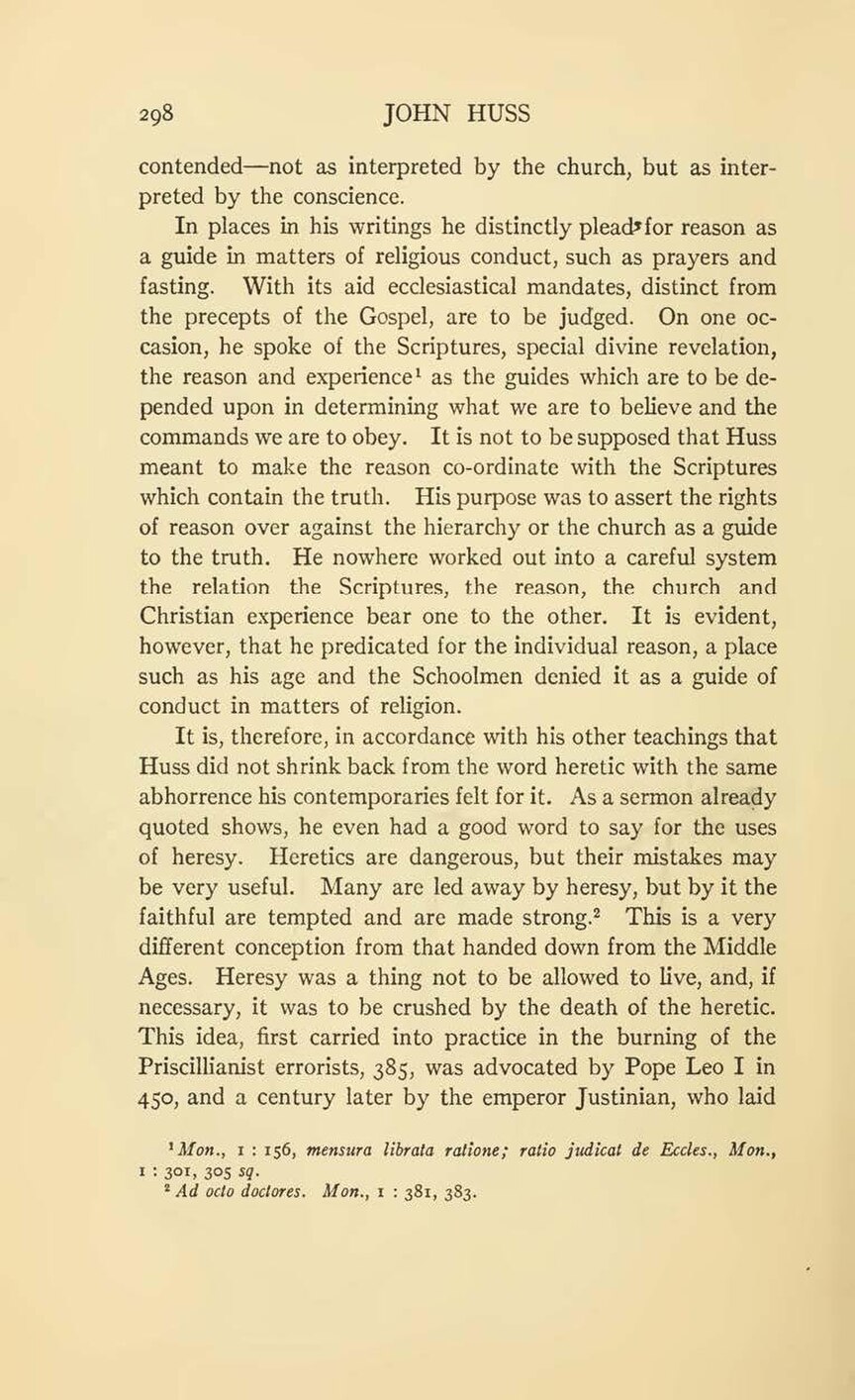contended—not as interpreted by the church, but as interpreted by the conscience.
In places in his writings he distinctly plead for reason as a guide in matters of religious conduct, such as prayers and fasting. With its aid ecclesiastical mandates, distinct from the precepts of the Gospel, are to be judged. On one occasion, he spoke of the Scriptures, special divine revelation, the reason and experience[1] as the guides which are to be depended upon in determining what we are to believe and the commands we are to obey. It is not to be supposed that Huss meant to make the reason co-ordinate with the Scriptures which contain the truth. His purpose was to assert the rights of reason over against the hierarchy or the church as a guide to the truth. He nowhere worked out into a careful system the relation the Scriptures, the reason, the church and Christian experience bear one to the other. It is evident, however, that he predicated for the individual reason, a place such as his age and the Schoolmen denied it as a guide of conduct in matters of religion.
It is, therefore, in accordance with his other teachings that Huss did not shrink back from the word heretic with the same abhorrence his contemporaries felt for it. As a sermon already quoted shows, he even had a good word to say for the uses of heresy. Heretics are dangerous, but their mistakes may be very useful. Many are led away by heresy, but by it the faithful are tempted and are made strong.[2] This is a very different conception from that handed down from the Middle Ages. Heresy was a thing not to be allowed to live, and, if necessary, it was to be crushed by the death of the heretic. This idea, first carried into practice in the burning of the Priscillianist errorists, 385, was advocated by Pope Leo I in 450, and a century later by the emperor Justinian, who laid
